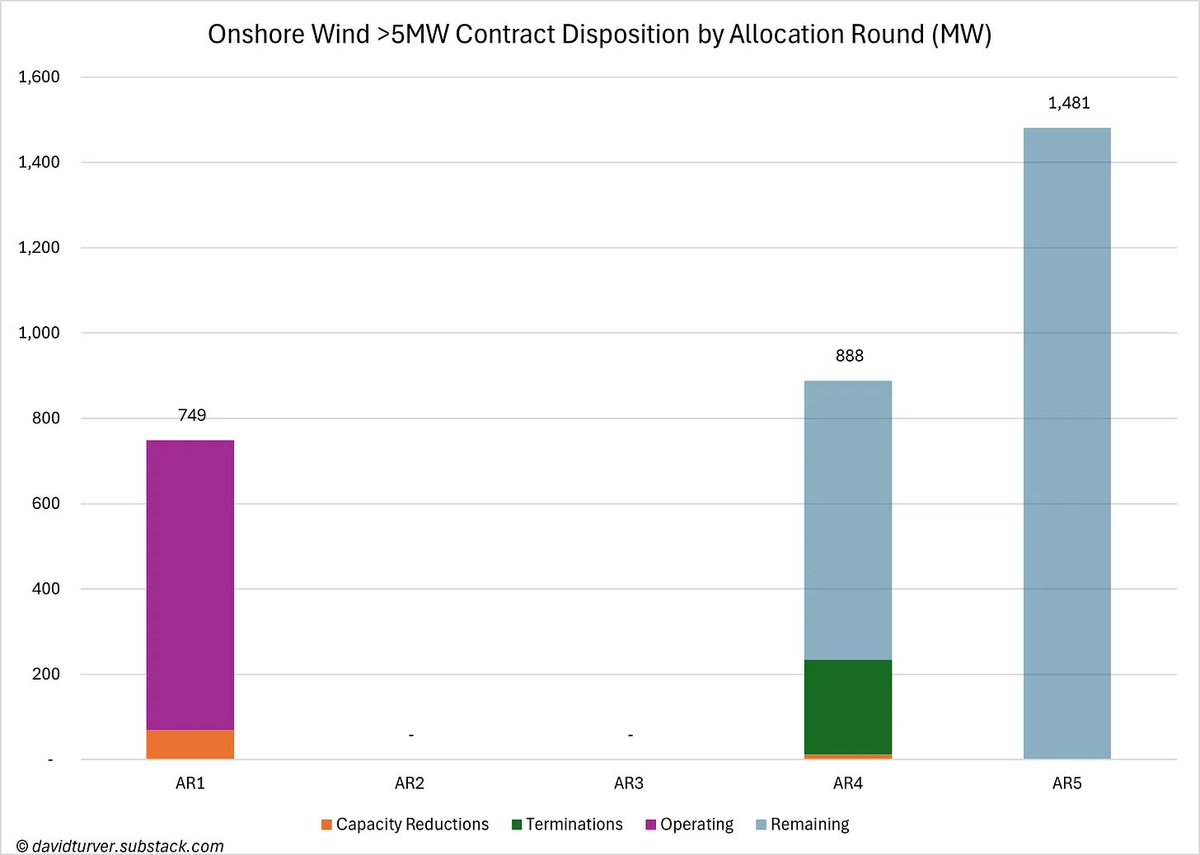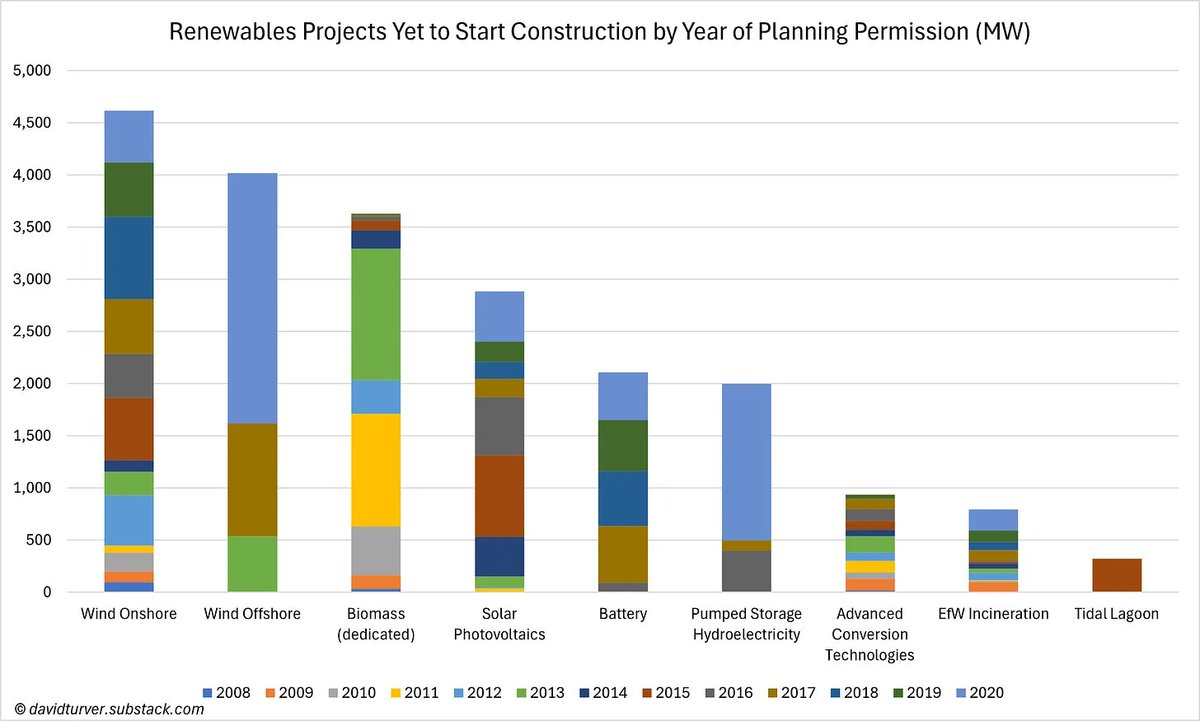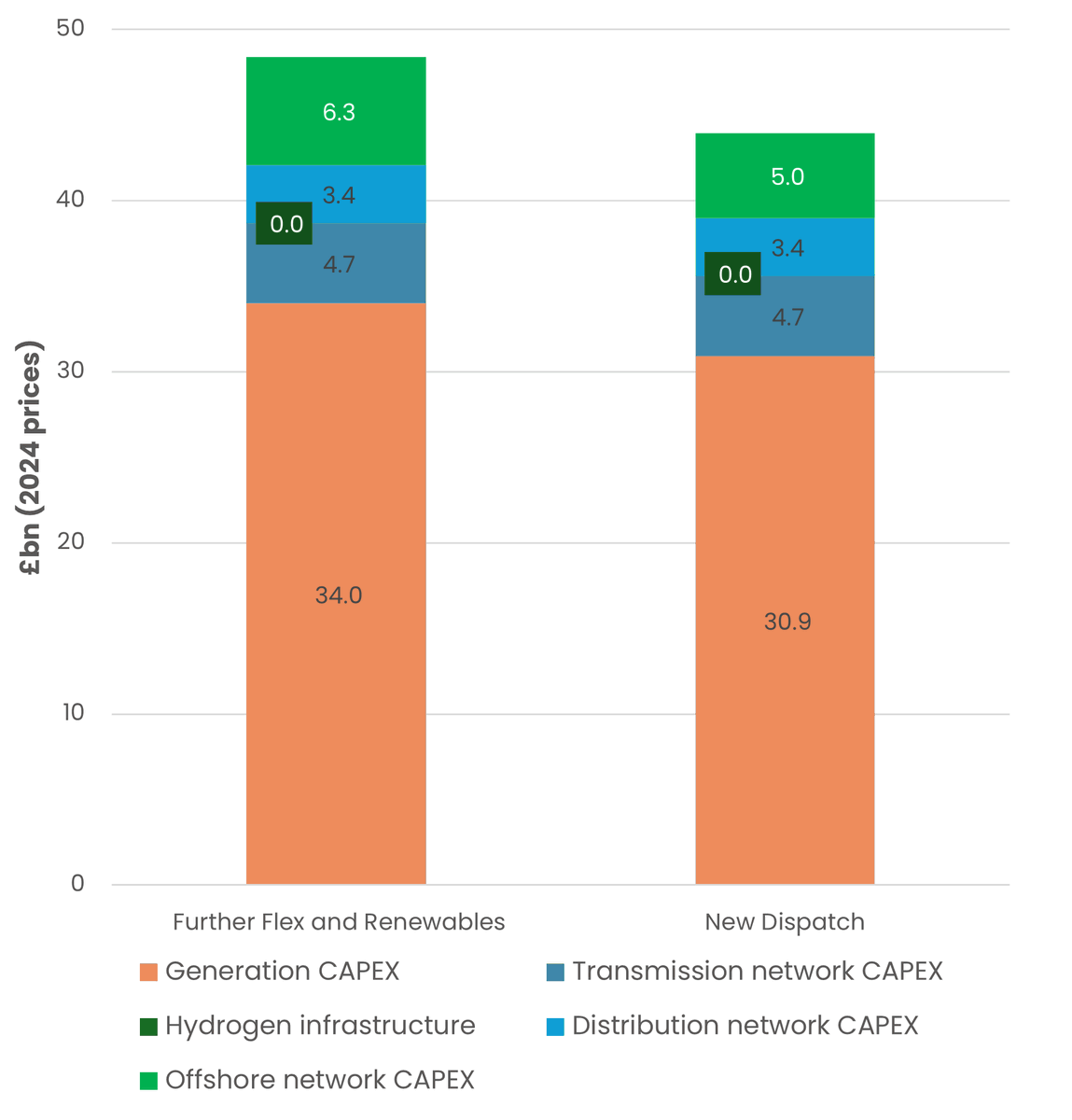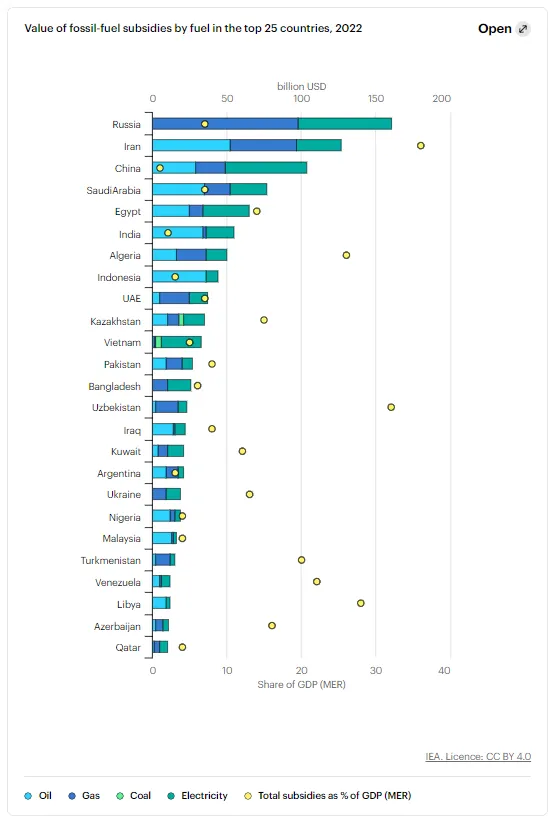Adding to the earlier thread on the REPD. It is also worth looking at what has happened to the CfD contracts that have been awarded (1/n)
https://x.com/7Kiwi/status/1858091843147518421
Let's start by looking at offshore wind. You may CfDs were awarded to 7GW of offshore wind projects in AR4 and this was hailed as a great victory and there were claims that wind was 9 times cheaper than gas (2/n)
Of those 7GW, there have been 2.7GW of capacity reductions & 1.4GW of contracts have been terminated leaving just 2.9GW in progress with none yet in operation. Some of the capacity reductions (e.g. Hornsea Project 3) have been awarded new contracts at higher prices (3/n) 

1.1GW of contracts were awarded in AR1 in 2015 & we're still waiting for NNG to come online. Of the 5.5GW of contracts in 2019's AR3, there have been 1.35GW of reductions and none are yet online. (4/n)
For onshore wind, of the 888MW awarded contracts in AR4, there's been 221MW of terminations & 12MW of capacity reductions and none yet in operation (5/n) 

Just two solar projects with a capacity of 23MW awarded contracts in AR1 are live, with the others apparently terminated. Of the 2,209MW of projects awarded in AR4, 276MW have been terminated & 73MW capacity reductions. None of these projects are live. (6/n)
Wind & solar projects are far from quick to deploy, hundreds have been granted permission only for the consent to lapse before construction begins. More than half of AR4 offshore wind projects have reduced capacity or been terminated (7/n)
There is nothing about wind and solar renewables that suggests fast and reliable deployment. Just like we cannot rely upon their power generation if they do get built. (8/n)
If you enjoyed this thread, please like, share & signup for the full article on the link (9/9):
davidturver.substack.com/p/where-are-th…
davidturver.substack.com/p/where-are-th…

Hi @threadreaderapp unroll please.
• • •
Missing some Tweet in this thread? You can try to
force a refresh












